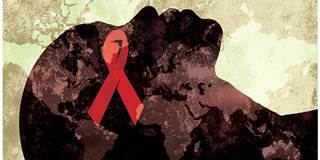Until recently, the South African government’s response to an epidemic affecting more than 10% of the population was lackluster and foolish. But rising pressure over the past two decades – from civil-society groups, the media, and more enlightened politicians – is finally showing results.
ERFURT – In the battle against HIV/AIDS, South Africa was for many years the perfect example of what not to do. Until recently, the government’s response to the epidemic, which threatened the country’s very lifeblood, was lackluster and foolish. But rising pressure over the past two decades – from civil-society groups, the media, and more enlightened politicians – is finally showing results. A disease that has inflicted profound social and economic pain, and dramatically reduced life expectancy, appears to be in retreat.

ERFURT – In the battle against HIV/AIDS, South Africa was for many years the perfect example of what not to do. Until recently, the government’s response to the epidemic, which threatened the country’s very lifeblood, was lackluster and foolish. But rising pressure over the past two decades – from civil-society groups, the media, and more enlightened politicians – is finally showing results. A disease that has inflicted profound social and economic pain, and dramatically reduced life expectancy, appears to be in retreat.